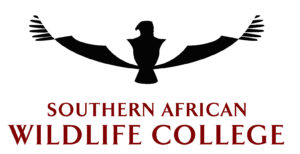Southern African Wildlife College
The Southern African Wildlife College (SAWC) was conceptualized in 1993 and established in 1996 by the World Wide Fund for Nature, South Africa (WWF South Africa) in close cooperation with interested and affected parties in southern Africa, including national and provincial government departments, other conservation agencies and the Southern African Development Community (SADC).
Since its inception, and with the support of WWF-SA and Peace Parks Foundation, the College has trained over 14,000 people from 46 countries, but mostly from countries in the SADC region, in natural resource management and conservation practices. By expanding its reach and becoming involved in training ventures and projects off-site, the College has also capacity-built over 2000 previously disadvantaged South Africans.
Through conservation education, training and skills development, the Southern African Wildlife College seeks to give protected area managers the motivation and skills they need to become partners in saving our continent’s natural heritage. All training comprises theory as well as practical skills and has been developed in close collaboration with conservation agencies and, where relevant, community participation.
The College also works closely with various qualification authorities and other training institutions to ensure that the students have maximum flexibility of career path. As an accredited HET and FET training institute, the College has aligned its curricula with the standards of the South African Qualification Authority (SAQA) and the National Qualifications Framework to ensure both national and international recognition.
By providing the high standards of professional and technical training that allows natural resource managers to manage their areas within the stated conservation objectives in cooperation with local communities, the College and its donors are helping to ensure that our natural resources are managed in an equitable and sustainable manner. In so doing, they also impact the role that conservation is playing in job creation and poverty alleviation in and around our wildlife reserves.
Mammoth Safaris is currently in the throes of exploring how best we can partner with the SAWC going forward, with our interest in guide training and wilderness conservation being paramount in our strategic thinking.



